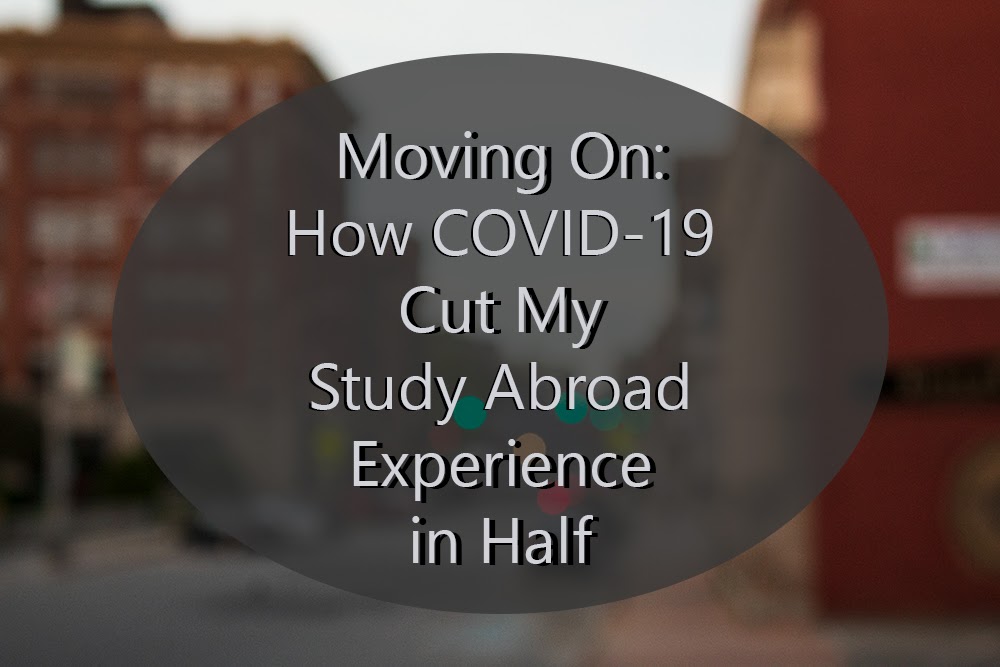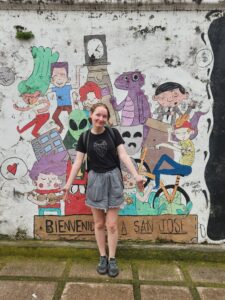In late February of 2020, COVID-19 cases were rising rapidly in northern Italy. While I was indeed paying attention to the news, I never thought for a second that the pandemic would pose a severe threat to my study abroad program in Torino. The whole situation became much more serious when classes were temporarily canceled the last week of February. At first, I thought this was exciting — what student doesn’t love a little break? However, after several days, my peers began to worry that the whole program might shut down.
Sure enough, the following week, our worst fears were confirmed. I woke up early one morning to a devastating email stating that the program, which had not even reached its halfway point in the semester, was officially being shut down. After reading the email I put my phone away and went back to sleep. I was in a slight state of shock and didn’t feel like facing the world. I had to move out of my apartment and leave Italy in three short days.
The goodbyes were tough. In fact, the last few days I had in Torino, which I spent bidding farewell to my newly-minted friends, were probably some of the most emotionally draining of my life. I felt cheated out of an experience that had only just begun. It was frustrating, saddening and stressful all at the same time. Everyone in the program, including the directors, spent their final nights in Torino tearfully sharing memories over food and drink.
Determined not to give up on the semester, I made last-minute plans with a handful of friends to experience the rest of Europe outside of Italian borders. We were all still hungry for adventure and were not ready to go home just yet. While most of the program went back to the U.S., my small crew planned to pack light and hop across Europe for the rest of March and maybe even into April if money and COVID-19 regulations allowed. I packed 80% of my belongings into a huge duffel and paid a random start-up company I had never heard of to ship the duffel home across the Atlantic. I had no idea if my stuff would make it back safely; all I knew was that I couldn’t realistically travel with five months worth of luggage.
Possessing nothing but a tiny rolling suitcase stuffed to its limit with the bare necessities, I left Italy and flew first to the island of Malta for three days, then to Budapest for a weekend and finally to Brussels. My crew’s initial plan was to visit Amsterdam and then Dublin for St. Patrick’s Day, but pandemic restrictions across Europe were becoming increasingly stringent.
On our second night in Brussels, everything came screeching to a halt. Around 1 a.m. former-President Trump addressed the nation, stating that travel restrictions to the United States would soon be tightened significantly. Because of the time difference, all our families were awake and frantically texting us to come home. By 3 a.m., we had all found flights leaving the next day. We did not expect a goodbye like this to arrive so abruptly; it was not an easy pill to swallow. Dropping everything in the middle of the night to return home was heartbreaking, but it had to be done so we all weren’t stranded in Europe.
After many long and reflective conversations, our crew tried to get some sleep. A few hours later, I got up, said my final goodbyes to my friends and left in an Uber headed for the Brussels airport at 6 a.m. Before I knew it, I was sitting alone in a Washington, D.C. airport.
The transition from traveling throughout Europe every weekend to sitting in my childhood bedroom taking online classes was rough, to say the least. The first few days home, while somewhat depressing, were also exciting because I got to tell my family about all my adventures. After this initial excitement, however, a question lingered in my mind: “Now what?”
Sliding back into a routine in your home country after living abroad is not easy. Reverse culture shock sets in — you are no longer the same person after such an experience and acclimating to your previous routine is startling. While I was eventually able to readjust, it was a long road mentally and emotionally. If you ever go abroad, you will also have to deal with a readjustment period upon returning home.
Probably the best method to healthily readjust is to get out of your house and be active. It is easy to stay locked up in a room, lamenting how exciting life used to be and how home life simply does not compare. This behavior is not healthy; you need to learn how to appreciate your local culture and environment again. Go hiking, surfing, biking or restaurant hopping. Enjoy the great outdoors of your state. You can do anything; just be active.
It is also beneficial to find and talk to other people who have studied abroad. Use these connections as outlets for storytelling or even for emotional help. Family members and friends can only listen to you so much before they become somewhat disinterested; it is difficult to relate to someone who has not studied abroad. However, people who shared your experience tend to be much more receptive to ramblings on travel and culture. Talking to study abroad alumni like this helps lessen feelings of loneliness during the readjustment period.
Finally, decide on a creative outlet. Self-expression is a fantastic way to sort through your post-study abroad thoughts and feelings. For me, filmmaking and writing are my creative outlets. Relating my time abroad stories through these mediums has given them more meaning. There is something truly satisfying about documenting your thoughts for others to hear.








